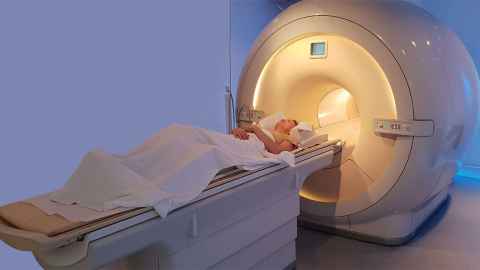Cancer - stacking the odds in your favour
16 July 2019
Opinion: Healthy living is not a guarantee against cancer – but it does stack the odds in your favour, writes Andrew Shelling, Mark Elwood and Clare Wall.

Cancer: it touches so many of us, personally or through our close family and friends: the harsh reality is one in three of us will get cancer in our lifetime, some of us will die of it, and many of us will die with it.
Grim I know, but ongoing health research means that every day we understand more and more about cancer. We are progressing in every area, from our better understanding of prevention, early detection and improved treatments that are helping people diagnosed with cancer to live longer and with better quality of life.
The latest science on what we can do to reduce our cancer risk is the theme of a new TVNZ documentary, How not to get cancer. As could be expected, the title of the documentary is proving controversial. It has been referred to as “confusing if not misleading” and “offensive” to cancer sufferers. But this is far from the intention of the documentary. How not to get cancer is a serious attempt to raise the issue of cancer in New Zealand, highlight the most recent research, and explore the most effective ways of reducing cancer though prevention.
Undoubtedly, cancer prevention is a topic that needs to be discussed and we need to raise the level of awareness of lifestyle factors in cancer development. However, if you or a close family member has just been diagnosed with cancer, it is very difficult to contemplate whether lifestyle choices may be contributing to your own ill health or shortening of your life.
Many patients when given a cancer diagnosis ask: “Why has this happened to me?” This is a very confronting question. It can lead to a sense of guilt that adds, unfairly, to the burden of the diagnosis. For most people, there is no answer, nor to the question that often follows: “How could I have I prevented this?”
The fact is, most cancer is accidental. It is caused by the appearance of a chance mutation in a cell that eventually becomes abnormal and, over many years, becomes a cancer. That means for most people, there is nothing they could have done to prevent the cancer from developing. There is no need for “blame”.
However, the accumulation of evidence from a wealth of health research over many years, has identified many factors that affect our chances of getting cancer. Some of those factors, such as inherited genes and ageing, we cannot influence. Others we, and our society, can influence, such as cigarette smoking, obesity, diet and exercise. These factors work together in affecting our risks of getting cancer.
How not to get cancer is a serious attempt to raise the issue of cancer in New Zealand, highlight the most recent research, and explore the most effective ways of reducing cancer though prevention.
Recent data has confirmed that approximately three or four out of 10 cancers are ‘preventable’, at least in principle: that is, people following all the advice based on research may have a third less cancer than the average for our population.
Cancer Research UK lists lifestyle changes important for preventing cancer as:
- not smoking
- keeping a healthy bodyweight
- eating a healthy, balanced diet
- cutting back on alcohol
- enjoying the sun safely
- keeping active
- doing what you can to avoid certain infections (such as HPV or hepatitis)
- being safe at work
But this information can be very confronting for an individual who has just been diagnosed with cancer. Cancer can happen to anyone, even if they have followed the advice, as more cancers - the other two thirds - are due to factors we cannot do anything about, such as our age, gender or family genetics. Further, most of us haven’t led perfect lifestyles and we may have had exposures when young that we can’t change now.
As Cancer Research UK says: “'Healthy living’ is not a cast-iron guarantee against cancer. But it stacks the odds in your favour, by reducing the risk of developing the disease.”
Most people who do everything to look after their health and wellbeing do not get cancer; but some do. On the other hand, many who do not have a healthy lifestyle may avoid getting cancer, although clearly the odds are stacked against them.
Moreover, our choices are not just our own but are greatly influenced by our society: what our family and friends do, what is advertised, what is sold. Successful cancer prevention for society requires not just trying to change individual choices through education, but changing society so that healthy choices are easier and become the obvious thing to do.
Professor Andrew Shelling, Associate Dean (Research), Professor Mark Elwood, Professor of Cancer Epidemiology, and Associate Professor Clare Wall, Nutrition and Dietetics, are from the Faculty of Medical and Health Sciences.
This article reflects the opinion of the author and not necessarily the views of the University of Auckland.
Used with permission from Newsroom Cancer - stacking the odds in your favour on 16 July 2019.